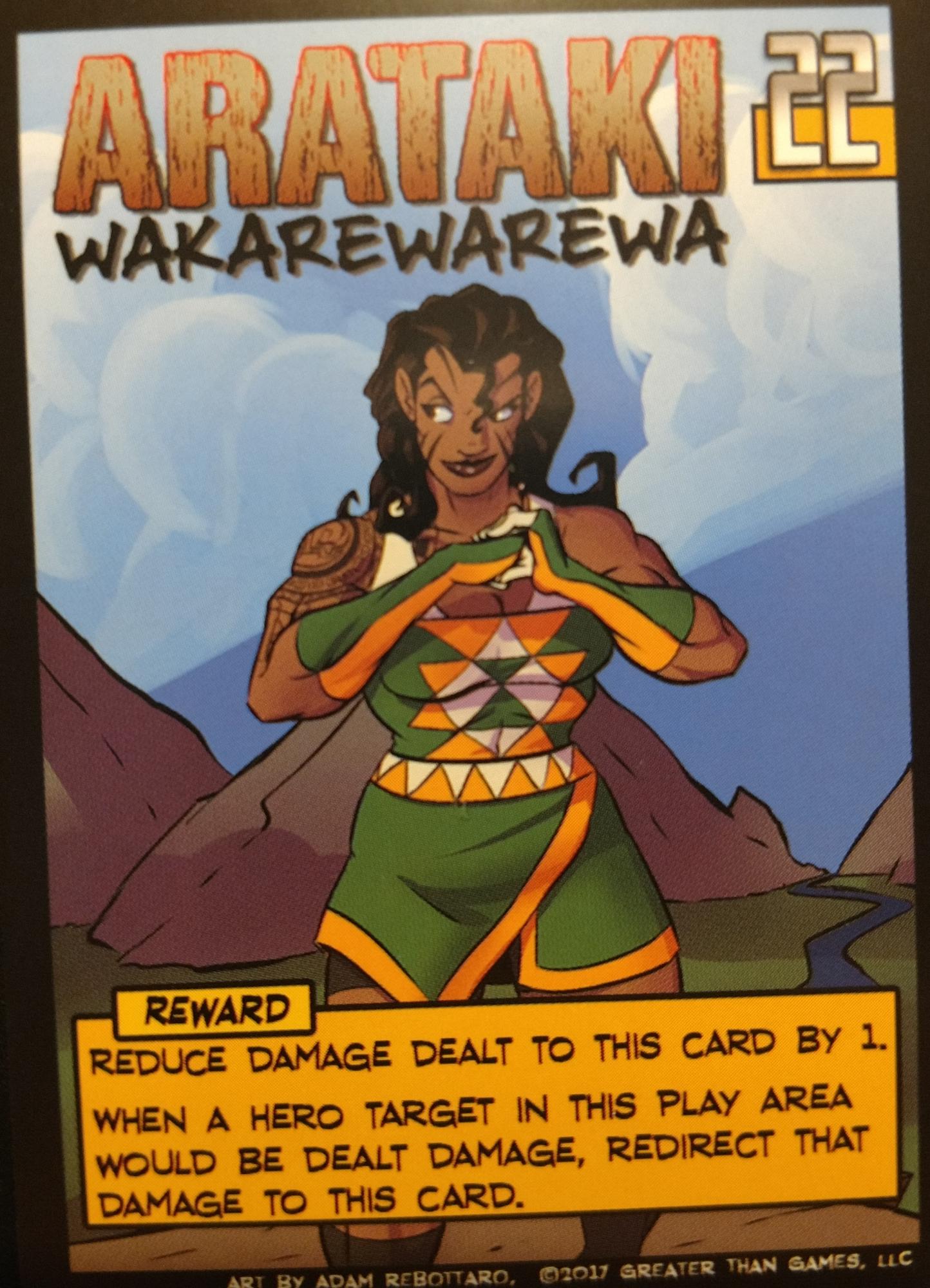Story Points
By Anthony Casperson
6-15-19
“Can I see that card,” I asked. A couple of friends and I were playing for our first time ever the latest and final expansion of my favorite tabletop game, Sentinels of the Multiverse. (I’ve mentioned the game often enough that you all are probably tired of it by now.)
This expansion, called Oblivaeon, has a very different way of playing than the base game and any of its expansions. One such inclusion is what is called the mission deck. If a player accomplishes the objective on the front of a card from this deck, then they get the reward on the back of the card. And this reward helps to more easily defeat the enormously difficult villain Oblivaeon, who’s bent on destroying the entire multiverse.
I wanted to look at the card because it didn’t seem to make sense to my friend, who called it a “crazy bird card” (pictured above). It seemed like the card would hurt itself and go away for no reason. However, a little deeper reading of the text on the card, and a lot of knowledge about the story of the game as told by its creators, helped me figure out what was going on here.
I explained how a character named Nightmist, and her alternate reality versions of herself from the worlds of the multiverse, opened mist portals so that heroes from other realities could come to fight this multiverse-destroying villain. The bird was attacking the hero on the back of the card and we had to either distract the bird from attacking her, or drive the bird away in order to save the hero (who would become our rewarded ally).
That hero on the back of the card was an alternate reality version of a hero named Haka from the base game. I continued to tell the story of her connection to the Haka that my friends and I knew, even explaining the fate of the rewarded hero after the official “canon” version of the Oblivaeon fight was over.
This was not a unique moment in the game. Quite often during our time playing I found myself telling the story I’d heard from the mouths of its creators. I explained other mission cards, the scion cards, and even some of the hero cards. Story after story flowed out. I even began to wonder if it was too much.
As we finished, having been victorious in our fight to save the multiverse, we all agreed that we had fun. However, my friends told me that if I had not been telling them the story, it would not have been as much fun. The storytelling helped keep us focused on it rather than the number crunching that could become overbearing. It flowed in such a way that the mentally taxing parts faded into the background (though they were still part of the game).
While I appreciated the compliment, it also made me start to think about other stories. Specifically, the story of the bible came to mind. There are many people, even many among we followers of Jesus, who think of the bible as a boring book of rules and regulations, things that get in the way of our enjoyment of life. But for those who take the time and energy to get to know the background and the story of it, the word of God can become an enrapturing tale of truth shining forth in a new light.
Certain sayings or ideas, specific statements in regard to life as the people of God, make much more sense when we take the time to read the text a little deeper and come to learn the background of who was writing and who their audience was.
Knowledge of the history of the original audience’s location might just give us greater appreciation of what is being said. For instance, when John writes to the church in Laodicea in the book of Revelation about them being lukewarm water, the history and location of Laodicea helps us know that they knew exactly what John was talking about.
The city tried to get cold water from a nearby location that would always end up warming to lukewarm before reaching their city. Not quite the refreshing drink they wanted. And the hotsprings of another nearby area would cool to lukewarm before entering the gates of the city. Too room temperature for a good relaxing bath. They really wanted hot or cold water, but everything they tried just kept ending up with bland and tepid water that they were tired of. And John was saying God felt the same way about them in their spiritual lives.
And there’s even more to discover about the stories of the bible. The history and the background of the author can give understanding for what the connotation of a phrase meant to them. When I preached through the book of James, the historical background of the half-brother of Jesus clued us in to major themes of his book that could be otherwise missed. Historical context of the nation of Israel gives insight to some parts of the bible. The story of why the human author wrote provides a depth otherwise lost. Even genealogies can have life breathed into them if we tell the stories of key figures in the list of names.
Story helps explain things that would otherwise make no sense to us. If we don’t understand why certain things work the way they do, we are likely to disregard them as crazy items that make no sense. They might even be tossed aside to misuse even though we would otherwise find them very useful.
So, let’s look at specific truths of the bible not as crazy, off-the-wall rules and regulations. Rather, let’s discover the story behind the text. It might just reward us an ally for our present struggle.


The ally on the back of the card.


